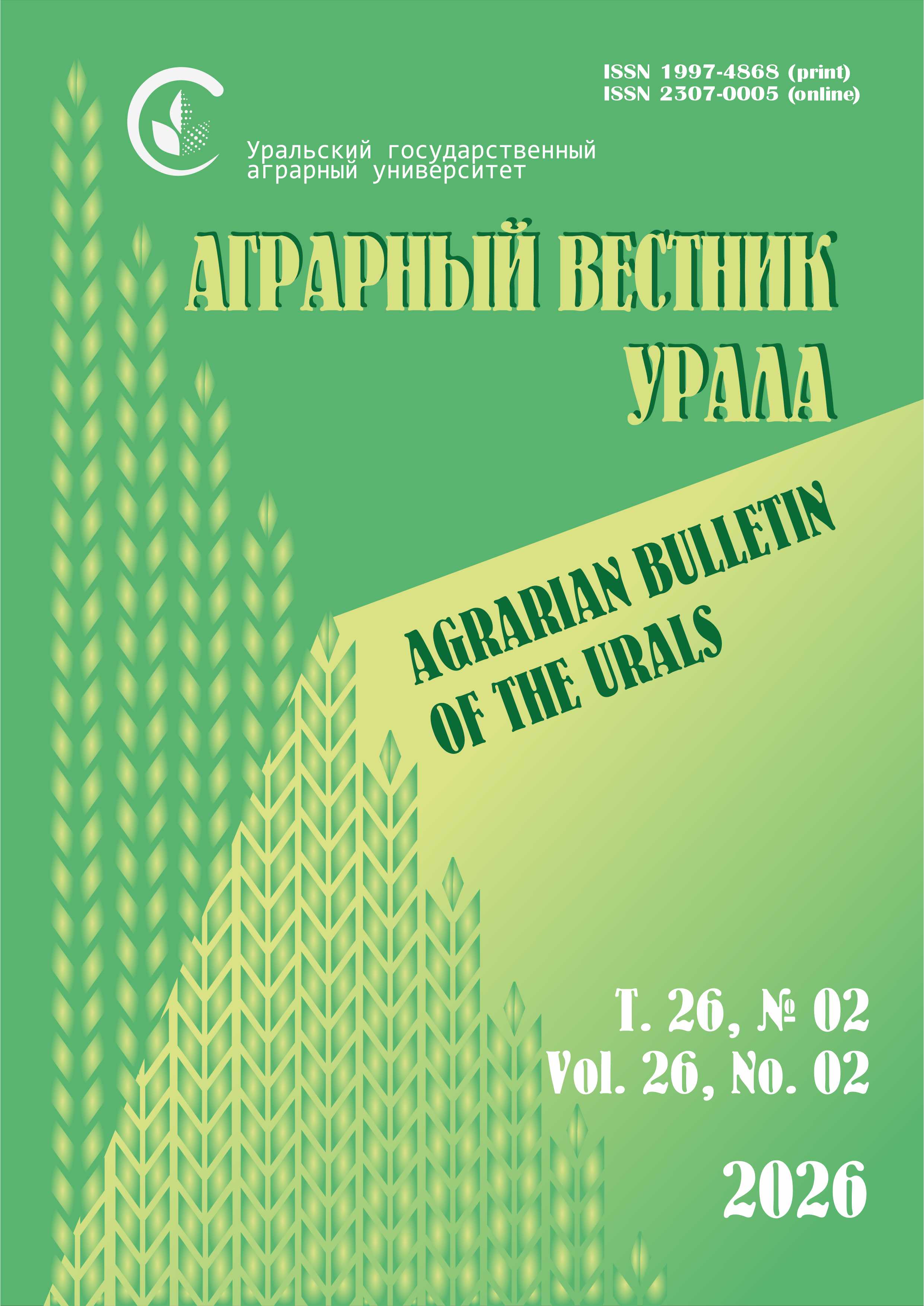I. N. Besaliev
Federal Resеаrch Center of Biological Systems and Agrotechnologies of the Russian Academyof Sciences, Orenburg, Russia
E-mail: This email address is being protected from spambots. You need JavaScript enabled to view it.
Volume 24 No. 12
Date of paper submission: 31.03.2024, date of review: 15.04.2024, date of acceptance: 27.04.2024
Published: 12/28/2024
Abstract. The purpose of the study is to evaluate the adaptability parameters of spring soft and spring durum wheatvarieties cultivated in the Orenburg Cis-Ural region under conditions of increasing climate aridity. Methods. Tworesearch methods were used: field with sowing varieties in experiments on ecological plasticity and calculationfor analyzing the results obtained according to the methodology for agroecological adaptability. Experiments onthe ecological study of spring wheat varieties were carried out on the basis of the experimental field of the FederalState Budgetary Scientific Institution Federal Research Centre of Biological Systems and Agrotechnologies of theRussian Academy of Sciences in 2016–2020 and in 2022–2023. The varieties were sown according to the predecessorof the black pairs in four repetitions in compliance with the technology for cultivating grain crops adopted inthe research area. The most common varieties of spring soft and spring durum wheat in this region were studied inthe experiments. Results. Weather conditions during the years of the experiments were characterized by significantvariability in terms of the hydrothermal coefficient over the months of the growing season, but the main characteristicof these conditions was determined by the increase in climate aridity, which has been characteristic in recentyears. An increase in air temperature was accompanied by uneven precipitation or its absence, which was reflectedin the formation of the average yield of varieties over the years. For the agroecological assessment, the methodologypresented by the Samara Federal Research Center of the Russian Academy of Sciences (SAM IC RAS) wasused. Indicators of the average yield of the studied crops, the variety yield index, the index of year conditions, therelative value of the variety yield index, the degree of responsiveness of the variety, the degree of depression in theyield of the variety, the degree of agroecological assessment of the adaptability of varieties were calculated. Basedon the results of calculating the agroecological adaptability of the variety, the varieties were ranked according tothe groups of their environmental adaptability. The obtained research results allow us to note varieties with a highdegree of adaptation: these are the soft wheat varieties Ul’yanovskaya 105, Al’bidum 32, Saratovskaya 70 andTulaykovskaya Zolotistaya, as well as the durum wheat varieties Orenburgskaya 10, Bezenchukskaya Niva andBezenchukskaya 210. Scientific novelty lies in the practical application and effectiveness of the obtained assessmentsof the studied varieties of soft and durum wheat for high, medium and low degrees of adaptation. The resultsobtained may be of interest to them as sources of donors of resistance to adverse climatic factors.
Keywords: adaptability, variety, spring soft wheat, spring durum wheat, productivity, Orenburg Cis-Urals
Acknowledgements. The work was carried out in accordance with the research plan for 2024–2030. Federal StateBudgetary Scientific Institution Federal Scientific Center BST RAS (FNWZ- 2022-0014).
For citation: Besaliev I. N. Ecological assessment of spring soft and durum wheat varieties in the zone of southernchernozems of the Orenburg Cis-Urals. Agrarian Bulletin of the Urals. 2024; 24 (12): 1576‒1585. DOI: https://doi.org/10.32417/1997-4868-2024-24-12-1576-1585 (In Russ.)
Download the full text of the article












